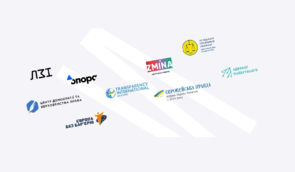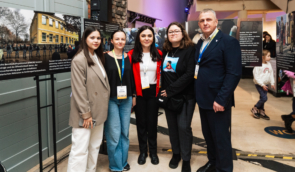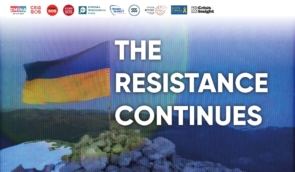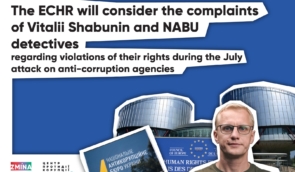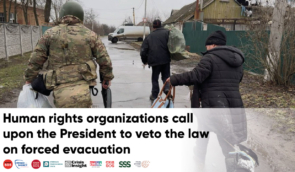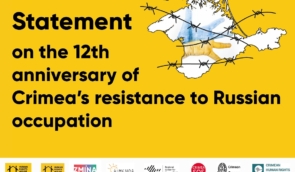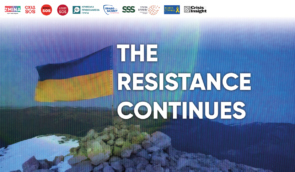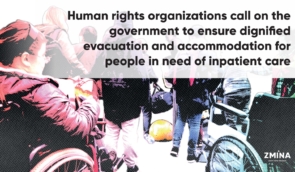Human rights organisations warned at the OSCE Conference of expanding a system of persecution and indoctrination in the occupied territories
At the OSCE Warsaw Human Dimension Conference, Ukrainian human rights defenders exposed how Russia’s occupation authorities are institutionalizing repression across the temporarily occupied territories of Ukraine. During the side event “Patterns of Repression in Occupied Territories of Ukraine: Human Rights and Humanitarian Perspectives”, experts presented detailed evidence of systemic abuses that leave civilians in a “rights-free zone.” The discussion was moderated by Dave Elseroad, Head of Advocacy and Geneva Office at the Human Rights House Foundation.
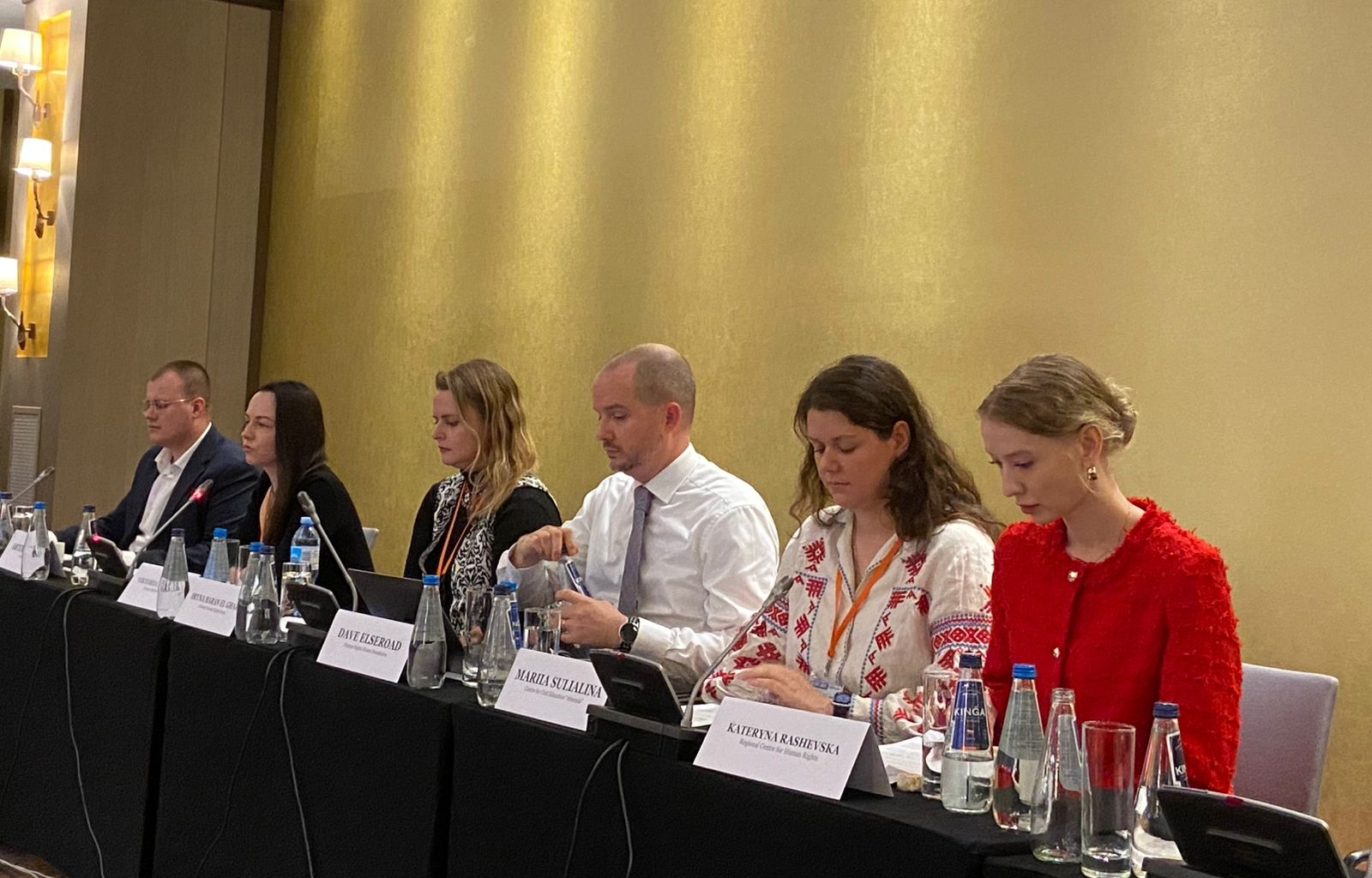
Opening the session, Viktoriia Nesterenko, Program Manager from ZMINA, outlined Russia’s systematic and methodical policy of persecuting civilians in the occupied territories. She stressed that the repression is deliberate, targeting those who dare to speak out about the reality of life under occupation. Nesterenko reported that Russia currently detains 26 journalists, 17 of them from Crimea, solely for trying to report the truth. “They were imprisoned for attempting to speak out and bring the realities of occupation to the outside world,” she said.
She detailed the inhumane detention conditions faced by journalists and other political prisoners — overcrowded and unsanitary cells, poor nutrition, denial of medical care, and widespread torture: “In August 2023, we presented the list of Crimean political prisoners in urgent need of medical assistance. At that time, 45 prisoners had serious health issues, 21 of them critical. By 2025, ZMINA has information about around 100 prisoners with health problems, 46 of whom receive no medical care at all. This shows a dangerous trend: over the past two years, the number of prisoners in poor health has doubled“.
Three Crimean political prisoners — Kostiantyn Shyring, Dzhemil Hafarov, and Rustem Viratti — have already died behind bars, underscoring that denial of medical care can be a death sentence. It amounts to torture and may be qualified as a crime against humanity, taking into account its systematic and widespread character in the framework of Russia’s persecution policy.
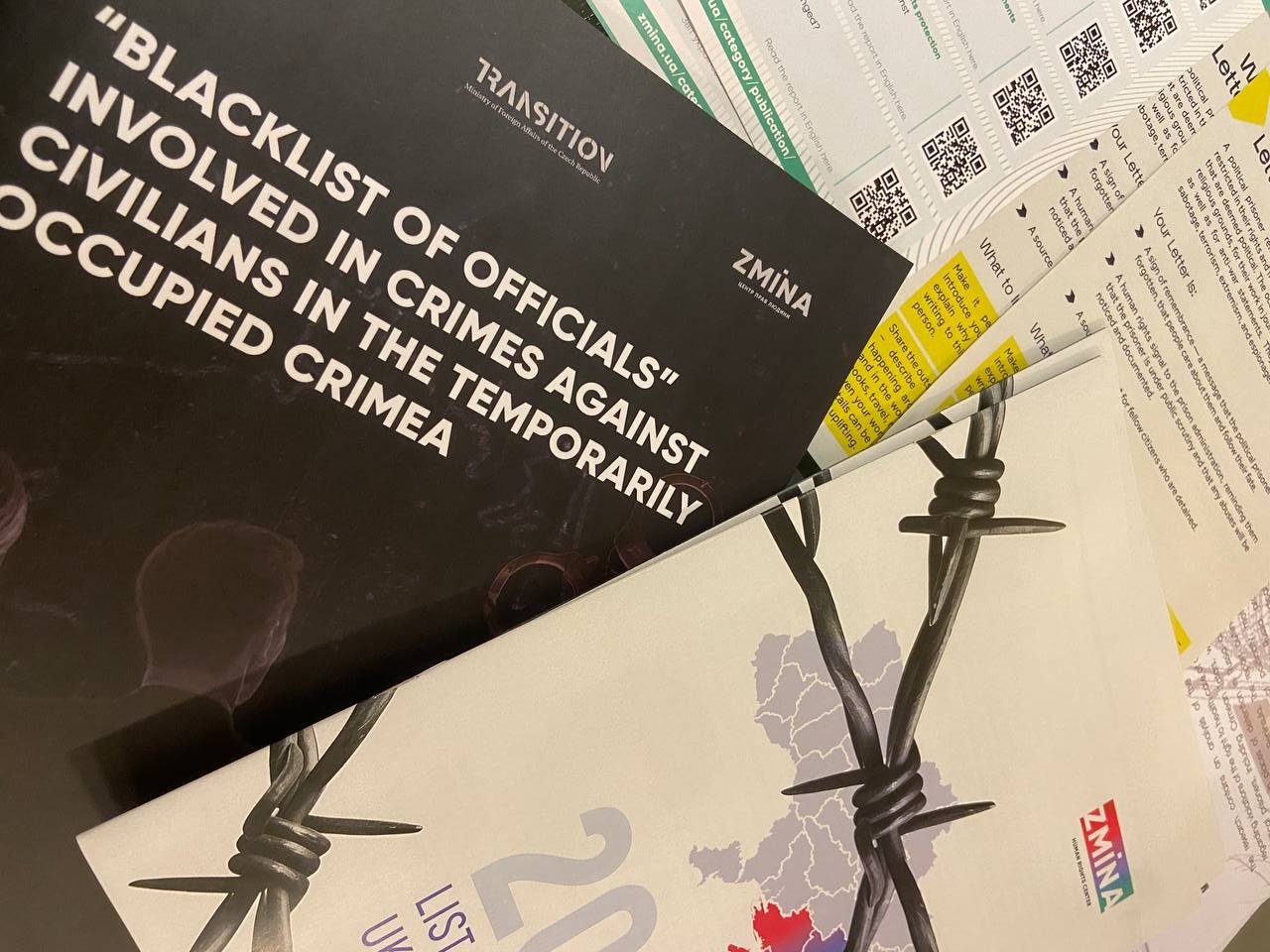
Iryna Baran from the Crimean Human Rights Group (CHRG), described the growing institutionalisation of repression in Crimea. In August 2025, the Kremlin tripled the budget of its federal program “Development of the Penal System (2018-2035)” to 359 billion rubles (approx. 3.8 billion EUR), including plans for a massive new pre-trial detention complex on the peninsula.
“This is not about overcrowding — it is about formalising repression as a state policy,” she said. At least two new FSB-controlled detention centres have already opened in occupied Crimea, where abducted civilians from southern Ukraine are held incommunicado. Since 2022, CHRG has also documented around 1,500 administrative cases against Crimeans for symbolic acts of Ukrainian identity, such as singing Ukrainian songs or displaying the flag.
Baran emphasised that women have become particularly vulnerable: more than 30 have been prosecuted for “state treason”, many sentenced to 15–22 years in closed trials. “Women are threatened that their children will be taken away if they refuse to confess. The courts have become instruments of intimidation, punishing loyalty to Ukraine itself,” she said.
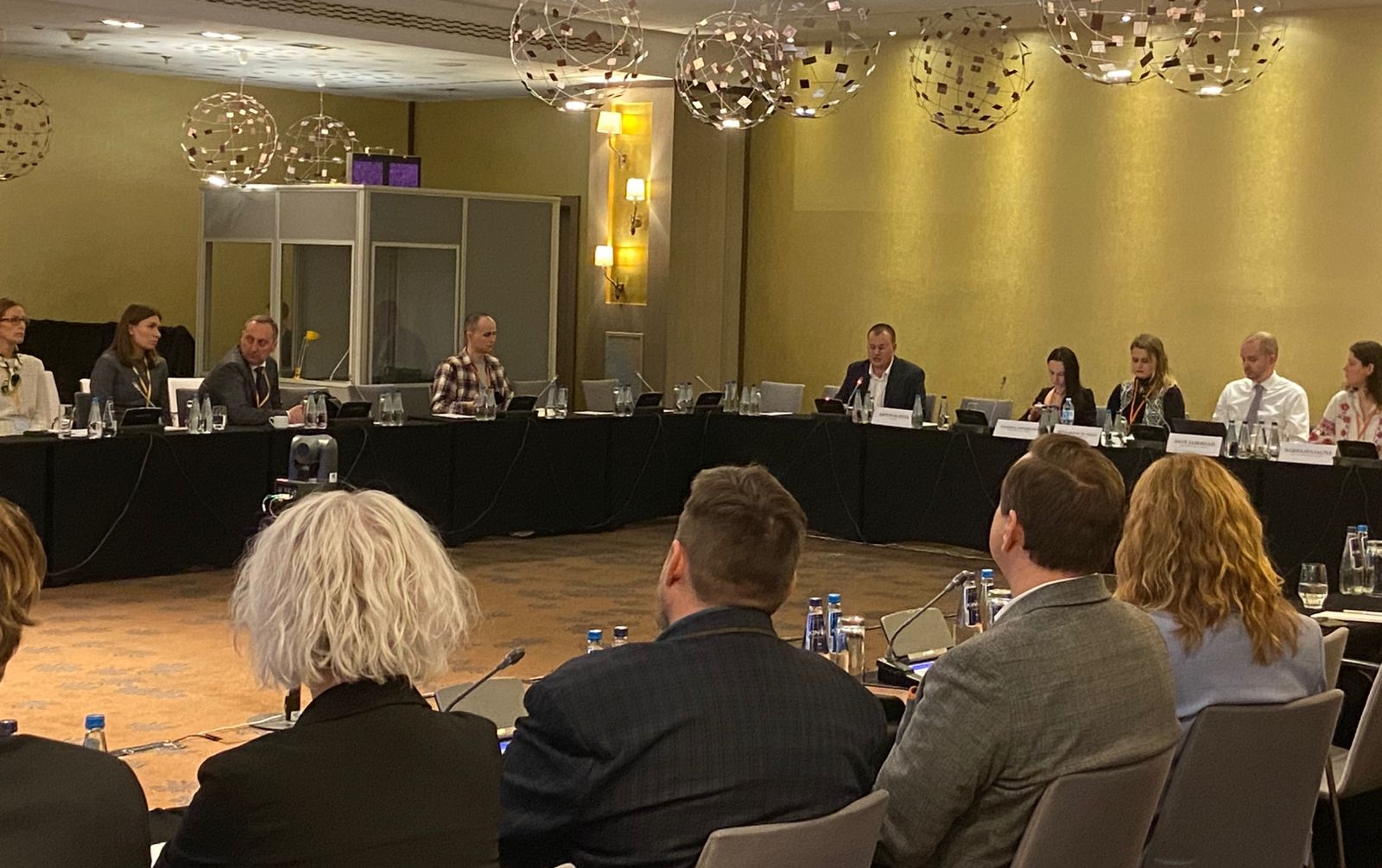
Artem Oliinyk from the Crimea SOS, stressed that the human rights situation in Crimea has worsened “along several critical dimensions — ethnic, gender, and legal“. He called this deterioration a deliberate state policy.
“This is not a series of isolated abuses but a systemic practice of the Russian Federation,” Oliinyk said. Attempts by rights defenders to expose and challenge Russia’s politically motivated prosecutions have only deepened the secrecy surrounding court proceedings. “The occupation authorities have begun deliberately concealing the names of judges, data on defendants, and even the legal qualifications of charges,” he noted. The advocacy expert also drew attention to continued pressure on professional communities — particularly lawyers and journalists — who persist in providing assistance and documenting abuses despite threats, surveillance, and censorship.
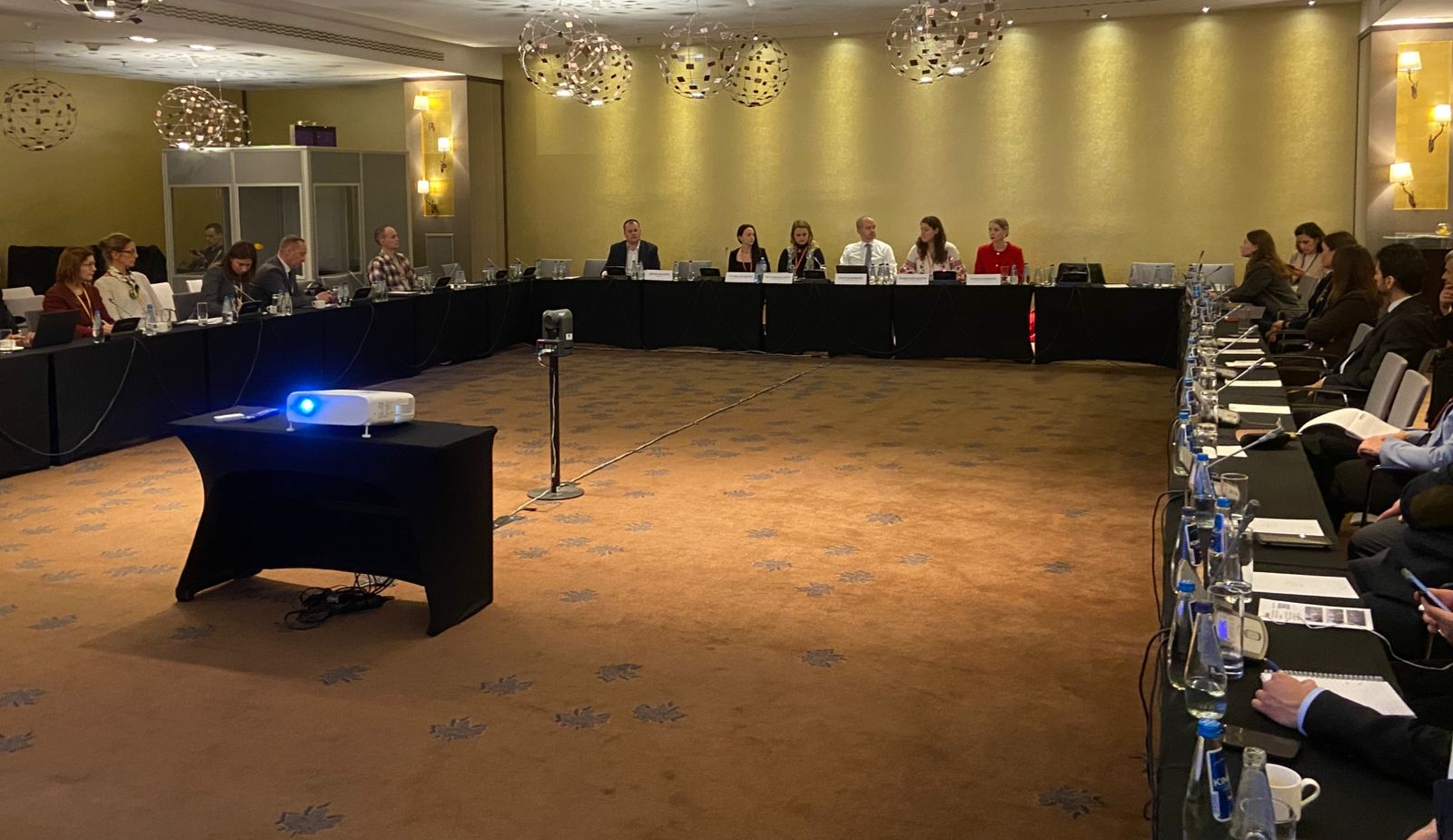
Mariia Sulialina from the Centre of Civil Education “Almenda” focused on how Russia’s occupation system extends its control to the youngest Ukrainians. “At least 1.6 million children now live under occupation. Nearly 600,000 study in schools where the Ukrainian language is banned, and military training is mandatory. Russia’s goal is to raise a generation of loyal soldiers, not free citizens,” she said
She explained that under “Russia’s Strategy for Countering Extremism”, adopted in late 2024, any pro-Ukrainian position can be labelled “extremist”. Teachers are required to report students showing “radical behaviour”, and children can be subjected to psychiatric confinement or prosecution. In the Donetsk region alone, occupation authorities prosecuted 161 minors, with 48 placed in compulsory psychiatric treatment.
“Children are forced to record video ‘apologies’ and express support for the so-called ‘special military operation. We must bring attention to these violations and help Ukrainian children regain their stolen childhood,” Sulialina said.
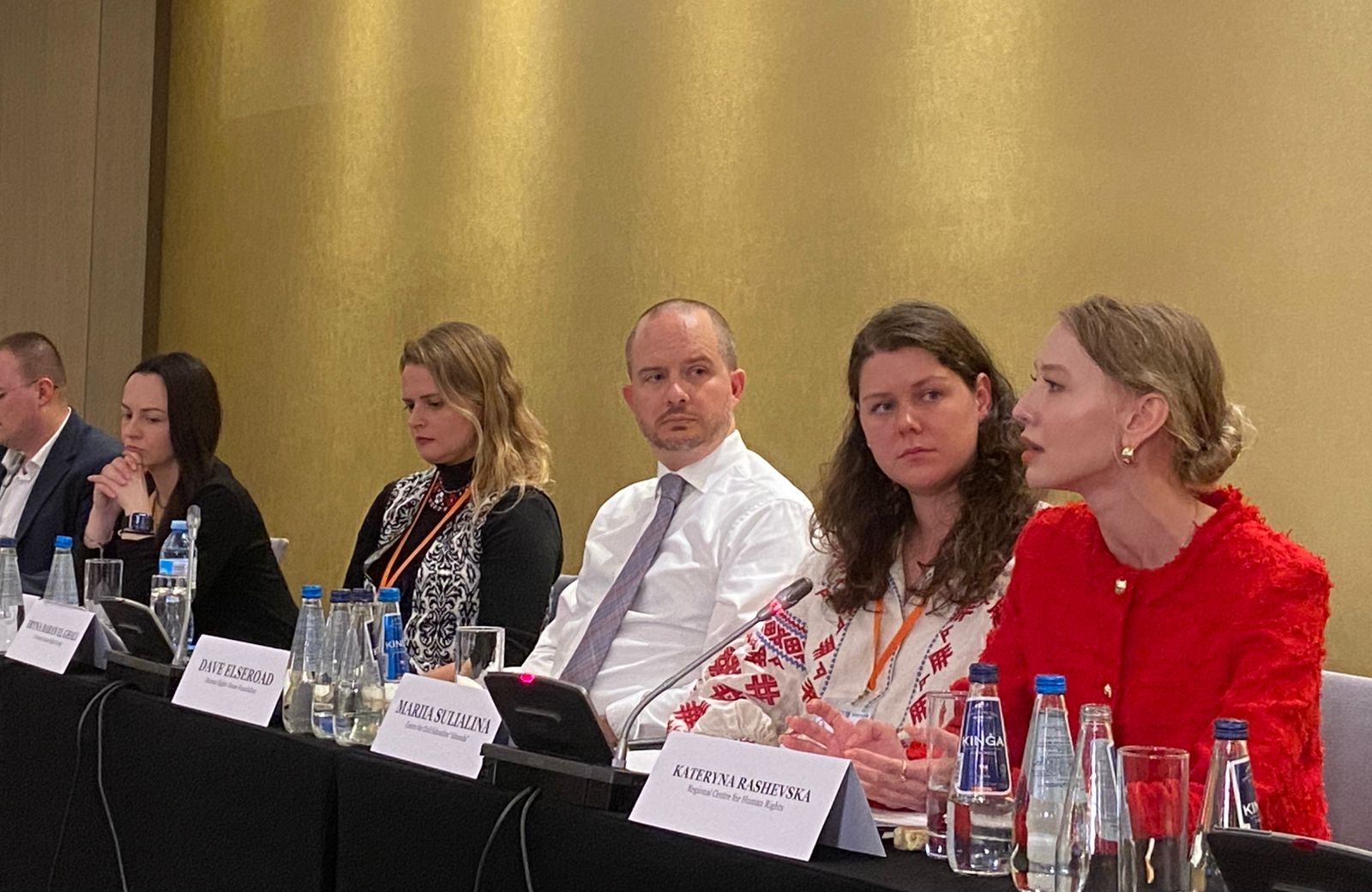
Kateryna Rashevska from the Regional Center for Human Rights described the occupied territories as “a legal vacuum” where people are denied even the illusion of justice. “Can you imagine what it is to find yourself in a legal vacuum — when remedies are not just ineffective, but simply do not exist?” she asked.
She shared testimonies of victims: a 16-year-old from occupied Zaporizhzhia arrested and tortured for distributing leaflets reading “Dniprorudne is Ukraine”; a Crimean man whose land was confiscated for refusing a Russian passport; and a nine-year-old boy from Kherson who witnessed the rape and murder of his mother by Russian soldiers.
“These are only a few examples proving that a rights-free zone has been created in the occupied territories,” she said, noting that the European Court of Human Rights has found no effective remedies for enforced disappearances, torture, or arbitrary detention. Rashevska warned that Russia’s refusal to apply international humanitarian law and its arbitrary use of domestic law have left civilians defenceless. “Since 2024, Russia has effectively granted amnesty to its servicemen for even the most horrific war crimes. Every day of delay means new violations, new victims, and another step toward erasing the Ukrainian nation,” she concluded.
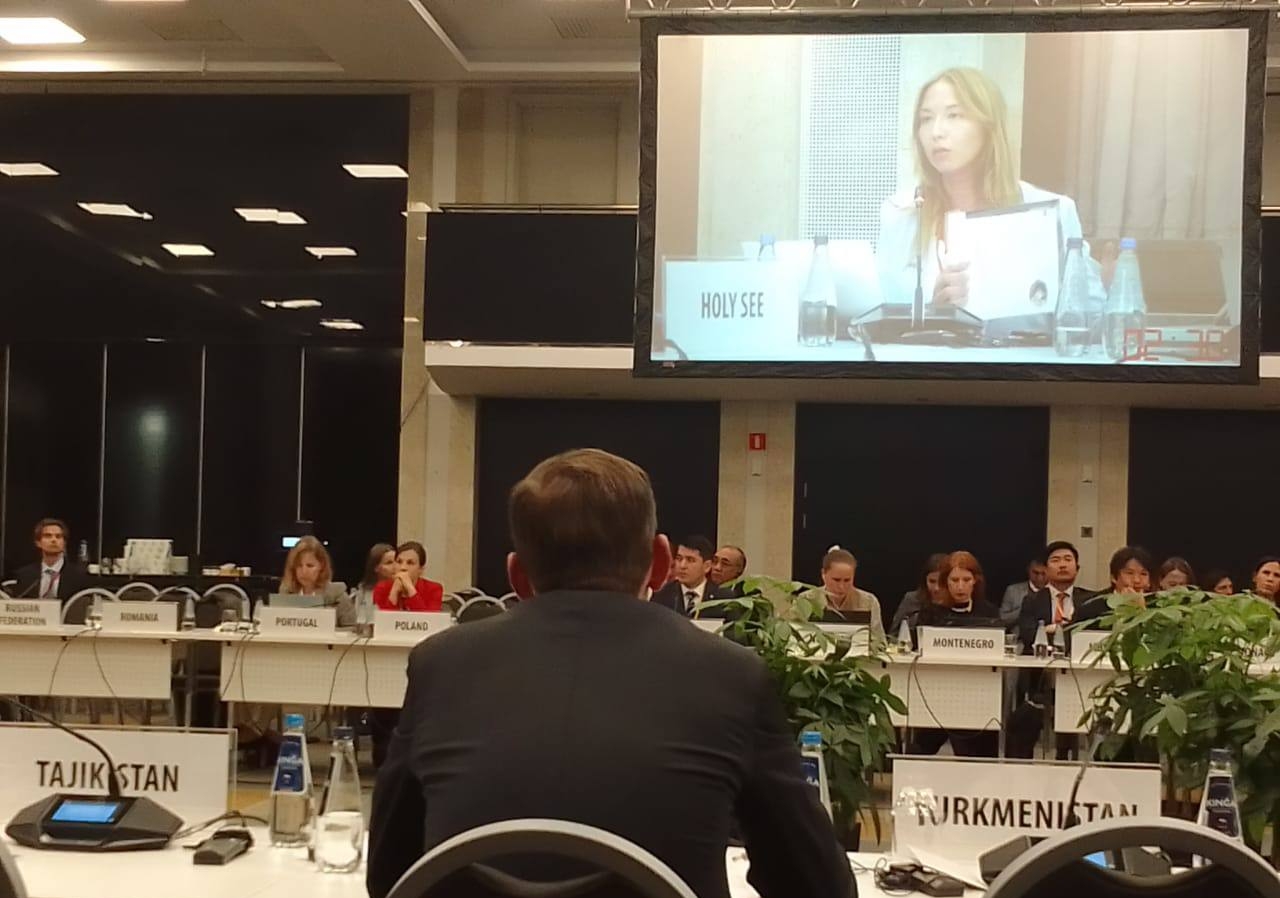
Participants agreed that the international community must act decisively to stop these violations and hold perpetrators accountable. They called on OSCE participating States to speak up about those suffering, including civilian detainees and children, intensify monitoring, strengthen mechanisms for justice, and recognise Russia’s denial of fundamental rights in occupied Ukraine as part of its broader campaign to erase Ukrainian identity.
This was also emphasised during the intervention of ZMINA’s Tetiana Zhukova at the main panel session. She underlined that these abuses demonstrate Russia’s complete disregard for international humanitarian, criminal, and human rights law, as well as the Helsinki Final Act. Zhukova quoted the released Crimean political prisoner Leniie Umerova, who said: “A world that talks about human rights at forums does not show up where those rights are being systematically destroyed. Let’s not talk about sympathy today. Let’s not admire courage. Let’s act!“
If you have found a spelling error, please, notify us by selecting that text and pressing Ctrl+Enter.

